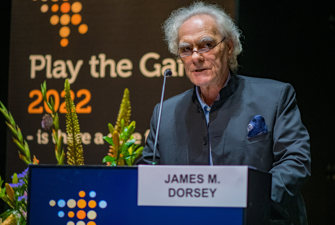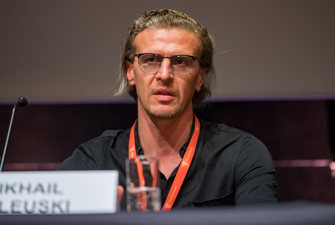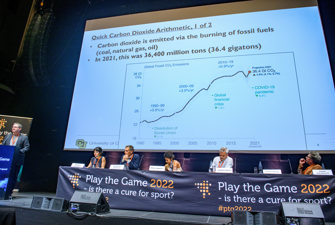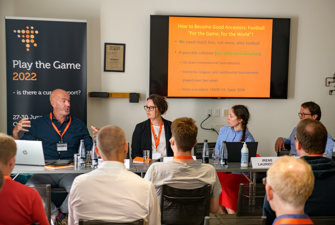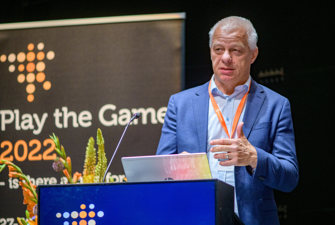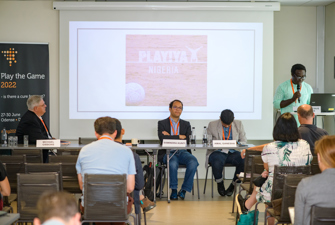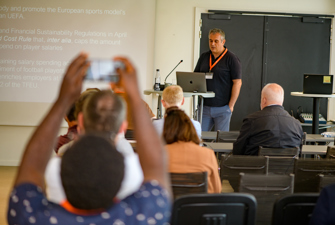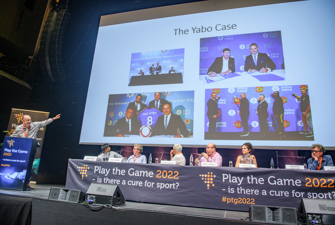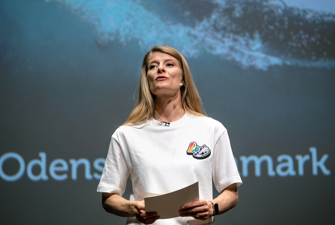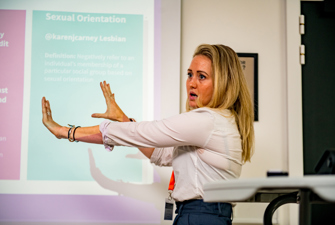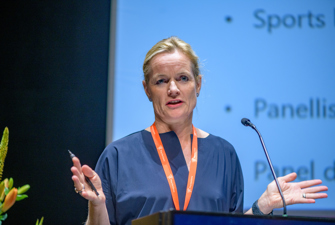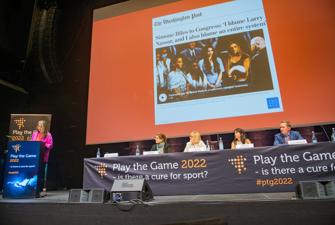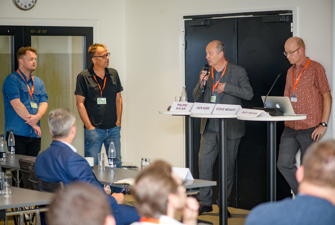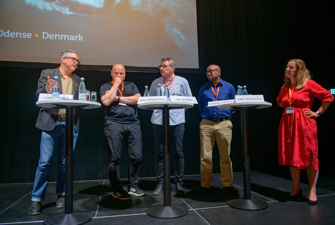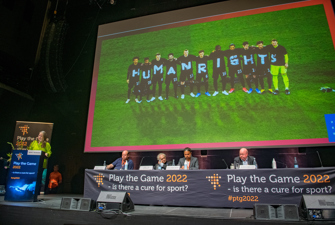Call for nuances in media reporting of the World Cup in Qatar
Media bias came under the microscope in a lively panel debate on the final day of Play the Game 2022.
The argument that journalists were not doing enough to put across the labour reforms that had been made in Qatar and providing unbalanced accounts of the human rights situation was challenged in a debate at Play the Game 2022 about the role the media should play in relation to the football World Cup in Qatar.
Professor Andy Spalding from the University of Richmond School of Law in the USA argued that Qatar has made more human rights reforms in recent years than any other mega-event host.
“Our failure not to discuss that is deeply damaging to mega-events and the human rights movement,” said Spalding, who disputed the figure of 6,500 migrant worker deaths in Qatar, saying these deaths were not all work related.
“It’s egregiously inaccurate and we can do better than this,” Spalding said.
Veteran journalist James Dorsey stirred the other media representatives on the panel by saying: “Journalists have become lazy, not just in getting the facts straight. Interviews with sources are not about deeper understanding but about a quick comment. Often interviews are by email or leaving a recorded comment on social media.”
Both viewpoints were challenged by the panel and from the floor, where Minky Worden from Human Rights Watch said that the deaths figure in Qatar was actually likely to be an undercalculation as the source was only five embassies.
Balance is hard to achieve in Qatar
The issue of balance was challenged by Halvor Ekeland, who was one of two NRK journalists from Norway who was arrested last November and detained for 32 hours in Qatar shortly before they were due to interview a key local whistle-blower.
Ekelund explained they tried to interview the government but without success.
“Stories will be one-sided and not that balanced when they do not do it.”
Ekeland and the other media representatives on the panel agreed that their job was to report on workers’ rights in Qatar and provide a challenge even if that can affect how they are viewed by both those they challenge and the media itself.
Norwegian journalist Andreas Selliaas said: “Sometimes we can be seen as activists by FIFA and by our colleagues. Maybe we are but we are trying to achieve something through journalism.”
Like Selliaas and the other journalists on the panel, Norwegian Lars Johnsen from Josimar had been to Qatar to report. He forcefully rebutted assertions of media bias and inertia, saying: “Defending the reforms is like defending apartheid South Africa.”
Swedish journalist Martin Schibbye from Blanksport had been both to Qatar and to India, Nepal, and Bangladesh to carry out more than 100 interviews with the families of migrant workers who had died building facilities for the World Cup.
“We need to go to Qatar to understand. We live in a simplified world and our job is to make it grey and more interesting,” said Schibbye, whose research produced an innovative form of factual journalism: a set of football cards detailing not players but the stories of workers who had died in Qatar.
“There is a risk about thinking about the narrative too much and should I do a good or a bad story,” added Schibbye. “We should just do our job.”
